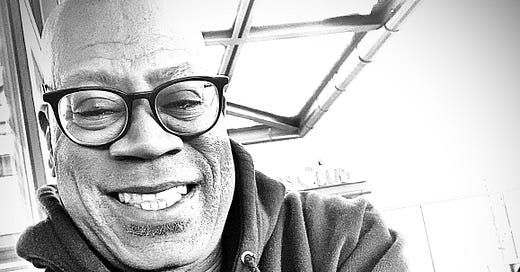Try Less, Achieve More
The Radical Power of Spontaneity in a Hustle Culture Society
In sitting down to pen this essay, I am mindful not to try too hard. After all, the essence of Edward Slingerland's book "Trying Not to Try: Ancient China, Modern Science, and the Power of Spontaneity" is a mode of being that eschews forced efforts in favor of a natural, effortless flow.
This provocative and insightful book unveils the concept of wu-wei, an ancient Chinese philosophy, through a modern scientific lens, offering a refreshing antidote to our perpetually "on mode” worldview.
In our modern world, where striving and ambition are seen as the engines of success, Slingerland's exploration feels almost radical. He dares to ask: what if the secret to achieving our highest potential is not in trying harder, but in trying less? This is not an encouragement towards lethargy or indifference but an invitation to embrace spontaneity as a path to well-being and genuine achievement.
The book introduces us to early Chinese philosophers like Confucius, Mencius, Laozi, and Zhuangzi, who championed wu-wei—which translates roughly to "non-doing" or "effortless action." These thinkers believed that the best way to cultivate virtue and ethical behavior was not by strict adherence to rules or deliberate action, but through becoming so well-aligned with one's nature and surroundings that proper actions arise spontaneously.
“Wu Wei” a thrilling, counterintuitive idea………………………………………….
……………………………………………….imagine achieving more by trying less.
Slingerland makes this ancient concept accessible to the modern reader by linking it to more familiar ideas in Western thought and contemporary psychology, such as "flow," the state of being completely immersed and involved in life in a way that is effortlessly productive.
He goes further to suggest that “wu-wei” is even more potent than flow because it extends beyond individual experience to influence how we interact with others. It’s about achieving a state of mind that enhances our engagement with the world in a manner that is perceived as genuine and trustworthy.
The most compelling parts of Slingerland’s narrative are where he delves into cognitive science to explain why spontaneity is so essential to our well-being. He discusses research suggesting that when we are in a state of wu-wei, our brain functions differently, enabling us to be more creative, connected, and charismatic.
This aligns with the discomfort of trying too hard—whether it's failing to fall asleep before a crucial day or stumbling through a conversation on a first date. In these moments, our excessive striving leads us away from “wu-wei,” resulting in a stiffness and artificiality that others can sense.
Slingerland’s writing is enlivened with anecdotes and analogies, from mythical creatures to modern-day jazz musicians, which make his arguments both accessible and entertaining. He draws an interesting parallel between “wu-wei” and the force in Star Wars—a concept familiar to most, thus illustrating how deeply the idea of effortless action is embedded in human culture and storytelling.
Yet, the book is not without its challenges. Embracing spontaneity in a world that rewards meticulous planning and relentless effort is not just counterintuitive; it's daunting. Slingerland doesn’t shy away from these difficulties but rather acknowledges them, making the book resonate on a deeper, more authentic level. In other words, he asserts that it is one thing to understand “wu-wei,” it is another to live it, especially in a society that might view such an approach as aimless or unproductive.
In an age where our value is often measured by our productivity, "Trying Not to Try" offers a compelling argument for reassessing how we define and achieve success. It urges us to reconsider our approaches to work, relationships, and self-improvement. This book is not just a call to be less strained but a deeply philosophical exploration into how we can align our lives with the rhythms of nature and our own hearts.
To anyone feeling burnt out by the incessant demands of modern life, Slingerland offers a message of hope. This book doesn’t just preach about reducing stress or finding leisure; it speaks to the very way we engage with the world. It challenges you the reader to let go, not in resignation, but as an active choice towards a more spontaneous, creative, and joyful existence.
"Trying Not to Try" is as much a philosophical or cognitive exploration as it is a practical guide to living well. It is a mind-expanding journey that reassesses the essence of human action and interaction, making a compelling case for the power of spontaneity. As I conclude this review in a state of mindful non-striving, I can't help but feel even more aligned with the ethos of “wu-wei.” Perhaps, in this ease, I've now come closer to the spontaneity Slingerland so vividly illustrates.
The Chocolate Taoist is a reader-supported publication. To receive my weekly reflections and aid my independent writing journey, please consider becoming a subscriber or member supporter.
Every little bit counts.
PS: My book “The Way of the Chocolate Taoist” is set to release on September 1, 2024. A free copy will be sent to all paid member supporters.





I've read that book and followed his courses online
It's so good I recommend it to friends who can read English. It has not been translated in French. Thanks for your great sum up. His other book about alcohol in societies is really great too.
Thank you for sharing your thoughts too. Keep going on in wu Wei.
A yoga teacher colleague of mine would say "try easy, don't try hard" when practicing yoga. Letting go of struggle or strain actually allows you to get more out of the poses. This lesson applies to life too, as I see it. Lessons we take off the mat and into the world. The stress of trying can get in the way. Being offers much more ease.